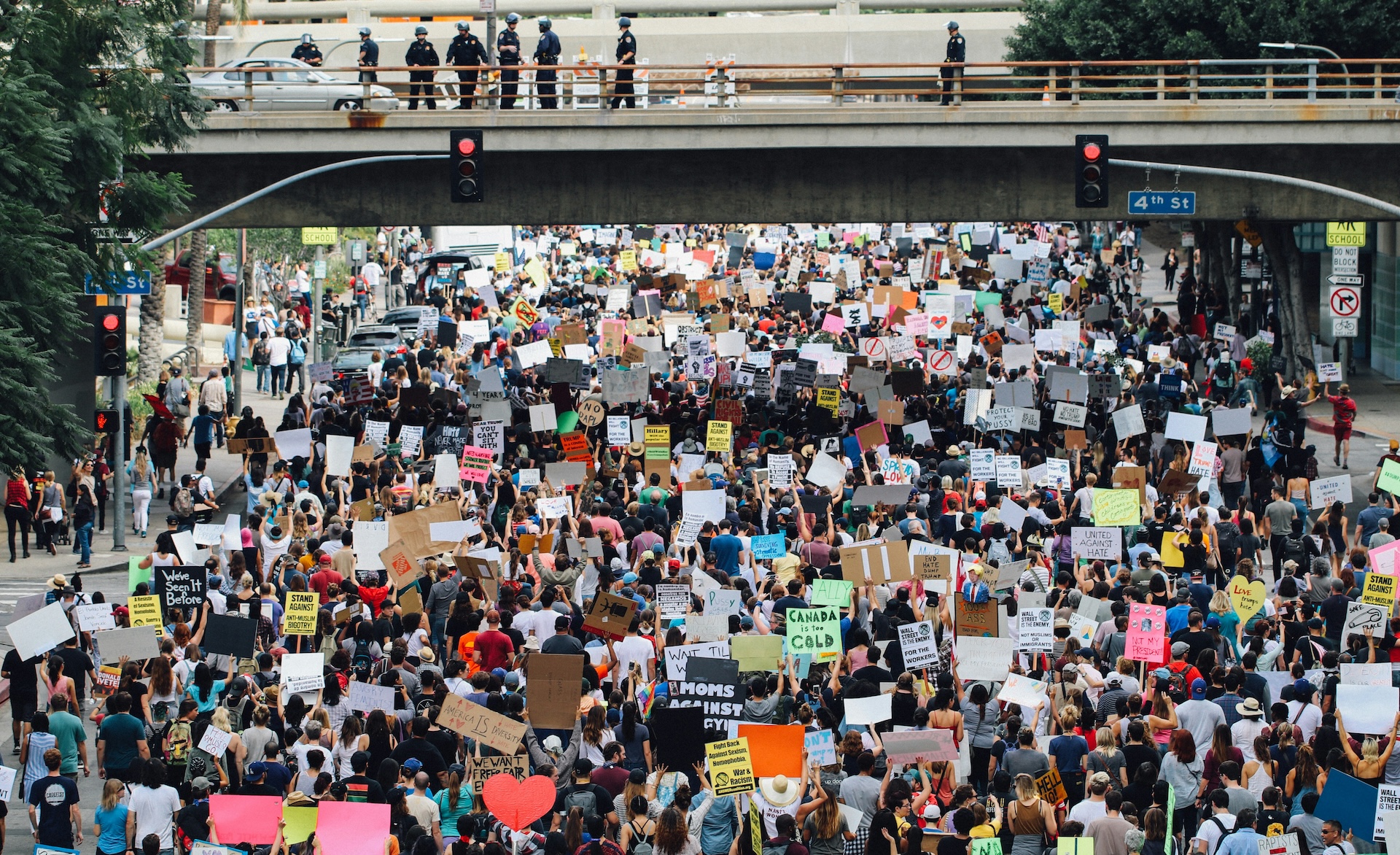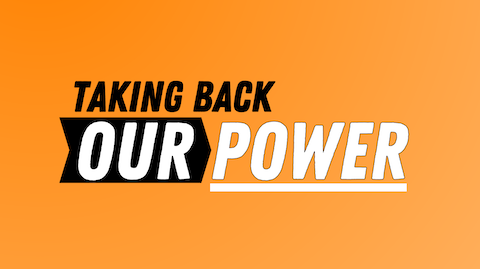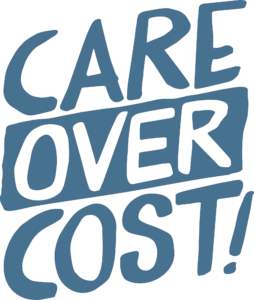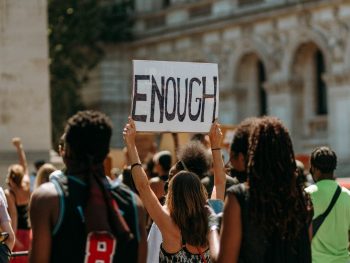News & Media
February 11, 2025

Given the complexity and interconnectedness of social issues today, it can sometimes feel overwhelming to figure out where to start in our own states and communities. Whether it's improving health care, fighting for environmental justice, or making sure everyone has an equal say in elections, the road to change isn’t always clear. That’s where the Theory of Change (ToC) comes in. Let’s break down how it works and how it can be used to address some of the biggest challenges facing Michigan today.
What Is the Theory of Change?
The Theory of Change is a comprehensive methodology for planning, executing, and evaluating initiatives intended to create long-lasting social change. It is a roadmap that helps organizations and communities articulate the steps needed to move from a current state to a desired outcome. A ToC identifies clear, measurable goals, the necessary preconditions to reach those goals, and the pathways leading from one to the other.
In essence, a Theory of Change answers the fundamental question, “How will we get from where we are to where we want to be?” By making assumptions explicit (clearly defined) and considering various factors that contribute to change, a ToC creates a strategic framework that helps keep projects and programs focused and aligned with the community's needs.
Why Use a Theory of Change?
A Theory of Change is valuable because it provides clarity and direction, particularly when trying to address complex social issues. Here’s why it’s crucial:
- Clarifies the vision. By breaking down a community’s long-term goals into smaller, actionable steps, a ToC helps make big ideas more manageable. It turns abstract aspirations into concrete actions.
- Improves collaboration. A ToC is a tool for bringing people together. It ensures that stakeholders — whether community members, policymakers, or nonprofits — are on the same page. Outlining how change will happen and what roles different groups will play fosters cooperation.
- Increases accountability. With specific outcomes and measurable steps, a ToC helps ensure that actions are tracked and evaluated. It allows organizations and communities to assess progress and make necessary adjustments along the way.
- Enhances sustainability. A well-constructed ToC considers not only the immediate outcomes but also the long-term impacts. This forward-thinking approach helps sustain change and prevents initiatives from fizzling out after short-term successes.
How to Create a Theory of Change
Creating a Theory of Change can feel like putting together a puzzle in that each piece must fit together to form the bigger picture. Here’s how to do it:
- Step 1: Define the long-term goal. Start by identifying the ultimate outcome you hope to achieve.
- Step 2: Identify preconditions or requirements. What must happen before you can achieve that goal? These are the necessary changes or conditions that need to be in place first.
- Step 3: Map out the pathways. Link your preconditions and outcomes. How will achieving one step lead to the next? What are the logical steps to get to your final goal? This is where a logical framework can come in handy — outlining the short-term, intermediate, and long-term outcomes in a sequence.
- Step 4: Identify indicators. How will you measure success at each stage? These indicators ensure that you can track progress and evaluate the effectiveness of your actions. If your goal is to increase access to health care, an indicator might be the number of uninsured residents who gain access to services.
- Step 5: Review assumptions and risks. Consider any assumptions you’re making about the project’s environment, and assess the potential risks that might derail your success. These could include political shifts, economic downturns, or community pushback. Being prepared for these risks helps mitigate their impact on the project.
- Step 6: Involve stakeholders. Engage the community and other stakeholders early in the process. Their input helps ensure the ToC is grounded in reality and reflects the true needs and resources of the people involved.
Issues in Michigan That Can Be Addressed With a Theory of Change
Michigan faces numerous challenges that could benefit from the strategic application of a Theory of Change. Organizations such as Michigan United are developing ToCs to drive improvements in these key areas:
- Environmental justice. Environmental degradation disproportionately affects low-income communities and communities of color. A ToC approach could address the systemic causes of environmental harm by focusing on policy reform, community advocacy, and the remediation of polluted areas.
- Immigrant rights. Immigrants in Michigan often face barriers to health care, education, and legal protections. A ToC could help organizations work toward policy reforms that ensure equitable access to services for all residents, regardless of immigration status.
- Health care access. Access to affordable health care remains a pressing issue, particularly for marginalized communities in Michigan. A ToC can guide the expansion of health care access by targeting key barriers such as cost, availability of services, and lack of health care education. By collaborating with local governments and health care providers, communities could work toward universal coverage, ensuring that every resident has the care they need.
- Transformative justice. Michigan has seen its share of challenges related to the state’s criminal justice system, which is often criticized for its punitive rather than rehabilitative approach, particularly when it comes to individuals from marginalized communities. A ToC could be instrumental in shifting toward a system based on restorative justice, focusing on rehabilitation, community support, and the elimination of systemic racism.
- Election protection. Ensuring that every eligible voter in Michigan has equal access to the polls is crucial for a healthy democracy. A ToC can help organizations such as Michigan United work to protect voters’ rights by identifying and addressing key barriers to participation.
How Any Michigander Can Help Drive Change
Michigan residents can be part of both the theories and the realities of positive, meaningful change by getting involved with social justice nonprofits such as Michigan United. There are many ways to participate in Michigan United programs, so Michiganders can choose the form of support that works best for them.
Be a Part of Real Change With Michigan United
Michigan United is a broad, statewide coalition working to protect free and fair elections, reform our broken health care and immigration systems, care for our environment, end mass incarceration, and make essential services accessible to all.
Our Theory of Change is a vibrant, inclusive movement in Michigan, and our community members are organizing to build power to effect change at local, state, and national levels. We’re working to dismantle systemic barriers that perpetuate inequality by building power and focusing on issues from a racial, economic, and gender justice lens.
We are a hub for people-centered leadership development, issue organizing, and civic power-building. We are movement builders.
Ready to do something now? Join us by becoming a member, volunteering with us, or getting involved with one of our projects. Start driving the reality of change today!
Tap here for upcoming events
Ready to Do Something Now?
Join one of our projects!

Join "Taking Back our Power" and take a stand against money in Michigan politics
We are a coalition of working families in Michigan fighting to pass comprehensive state legislation to prevent regulated monopoly corporations and companies seeking government contracts from making political contributions. We can no longer let them buy their way out of accountability and drown out the voice of the people!
Join "Care Over Cost" and help us get people the healthcare coverage promised by their insurers
In Michigan and all across the country, our members are fighting individual care denials and are WINNING people the care they need--and paid fo! Together, we are working to transform our health care system to put Care Over Cost and people over profit.


Become a Relational Organizing Leader
Relational organizing is defined as “preparing & supporting people to bring the power within their existing relationships to affect change.” In actuality it is turning a contact into a conversation and then into a person empowered to create change where they live.
Recent News & Media




